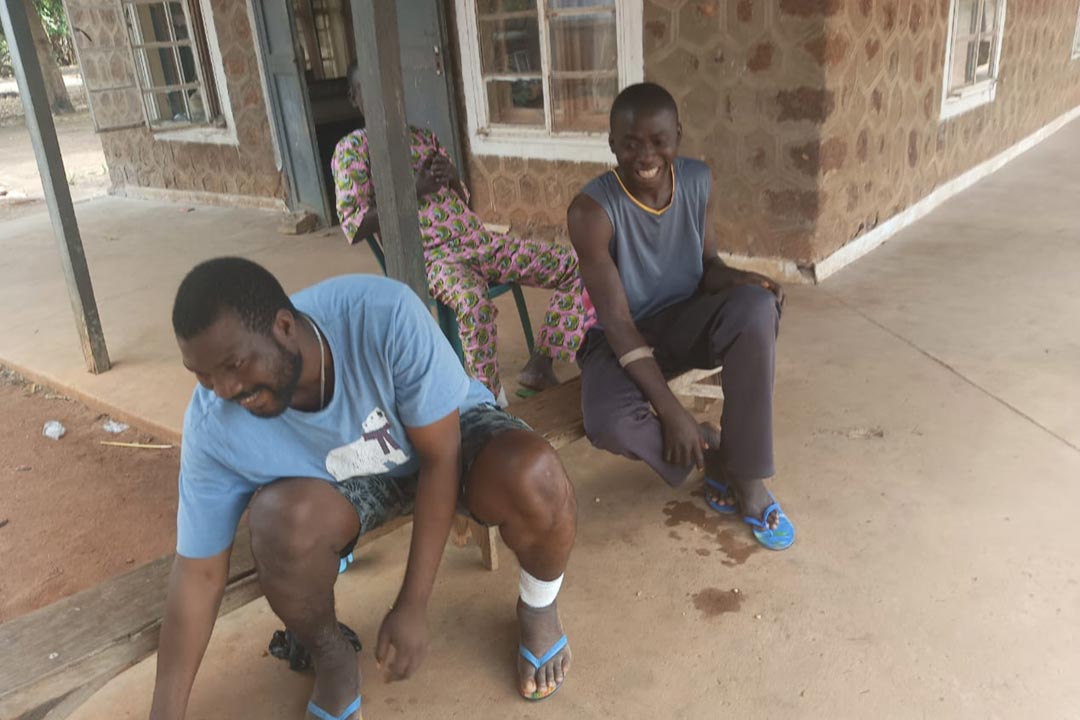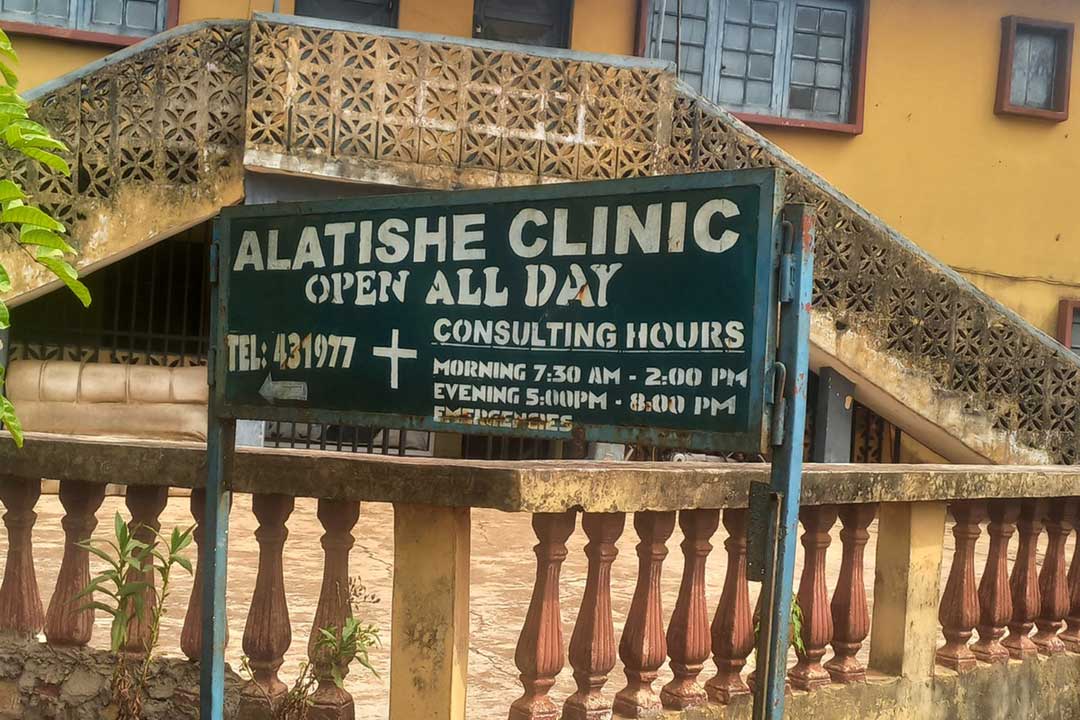Nigerian states double down on immunisation to fend off resurgent diphtheria
A deadly outbreak of vaccine-preventable disease is a tragedy. For many parents in Nigeria, recent diphtheria epidemics have also served as a wake-up call.
- 19 July 2023
- 8 min read
- by Afeez Bolaji

Maimuna Saleh of Kano State in north-west Nigeria gazed at her six-month-old son, Abdullahi, in something resembling awe as she sat cuddling the baby on one of the benches outside the immunisation ward of Dawakin Tofa Primary Health Care Centre. It was a mid-July morning, and Abdullahi had just received his scheduled drop of supplementary vitamin A.
Born in the shadow of the December diphtheria outbreak that killed more than two dozen in Kano in just weeks, Abdullahi is up to date on his childhood immunisations, in large part thanks to that epidemic.
We didn't believe in vaccines in my household until the outbreak happened.
– Maimuna Saleh
Until children started dying of the resurgent vaccine-preventable bacterial illness, Saleh said, she didn't take vaccination seriously. Diphtheria, once known as the "strangling angel of children," since it often kills by causing severe inflammation of the nose, throat and windpipe, restricting respiration, arrived as a wake-up call.
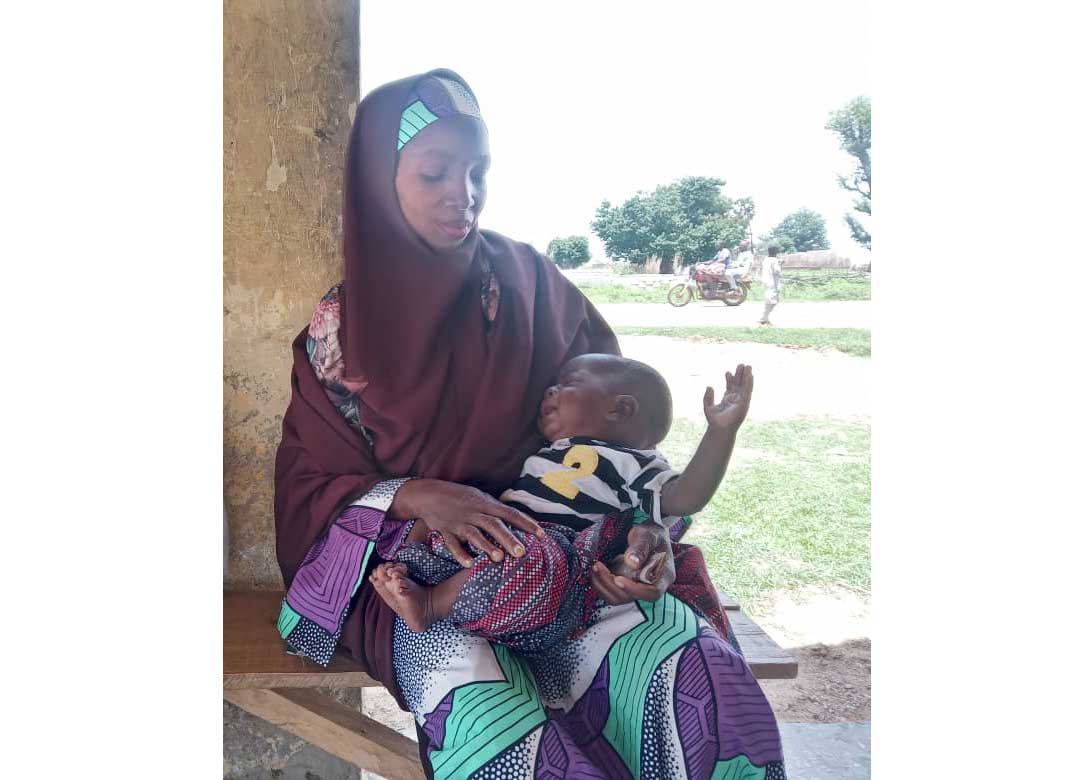
Credit: Afeez Bolaji
"I was scared because I witnessed how it [diphtheria] affected children. We didn't believe in vaccines in my household until the outbreak happened. This [Abdullahi] is my third child. My husband didn't allow me to even go to a hospital for child delivery let alone getting my two older children immunised, but he had a rethink when the outbreak struck."
She displays her son's vaccination card. He has taken Bacille Calmette-Guerin (BCG), three doses of oral polio vaccine and the pentavalent vaccine which prevents diphtheria, tetanus, Hib, whooping cough and hepatitis B, the document confirms. He has also had his pneumococcal conjugate vaccine, rotavirus vaccine and inactivated polio vaccine doses.
"Now nothing can stop me and many other women from my community from getting our children fully immunised. We even realise that our children who receive vaccines regularly hardly get sick," Saleh tells VaccinesWork in the local Hausa language.
On 1 December 2022, the Nigeria Centre for Disease Control (NCDC) was alerted to diphtheria outbreaks in Kano and Lagos – Nigeria's two most populous states, with a combined estimated population of over 37 million.
In June this year, the disease hit again. By the end of the month, 798 confirmed cases were recorded in Kano, Lagos, Yobe, Katsina, Cross River, Kaduna and Osun states as well as in the Federal Capital Territory (FCT) of Abuja, according to the NCDC. Eighty of those patients died, and 71.7% of the cases were children aged between two and 14 years. Kano was home to the vast majority of cases: 782 out of the total of 798.
"Despite the availability of a safe and cost-effective vaccine in the country, 654 (82%) of 798 confirmed diphtheria cases in this ongoing outbreak were unvaccinated. Unfortunately, this also includes this recently announced FCT case," the NCDC Director General, Dr Ifedayo Adetifa, said in a statement.
As part of response measures, the agency is coordinating diphtheria risk communication and community engagement. More, the National Primary Health Care Development Agency (NPHCDA) is intensifying routine diphtheria immunisation, and instituting catch-up campaigns especially in states with high numbers of zero-dose children.
“Now nothing can stop me and many other women from my community from getting our children fully immunised. We even realise that our children who receive vaccines regularly hardly get sick.”
– Maimuna Saleh
The COVID-19 pandemic disrupted routine immunisation, leading about 2.2 million children in Nigeria to miss out on receiving a single dose of routine vaccines. The diphtheria outbreak has been one of the costs of the growth of that immunity gap. But several states are working hard to cover lost ground by doubling down on immunisation.
Strategies include retraining of health workers, improved outreaches, increased awareness, tracking of children's immunisation progress, expansion of cold chain equipment and logistics for vaccines, collaboration with non-governmental organisations, and unannouncedvisits to primary healthcentres to monitor immunisation, among others.
Have you read?
In Kano, for instance, the government has mobilised the State Emergency on Routine Immunisation Coordination Centre (SERICC) and Local Emergency on Routine Immunisation Coordination Centres (LERICCs) across the 44 local government areas of the state. Recently, the state government also signed the third phase of a Memorandum of Understanding with the Dangote Foundation, in collaboration with UNICEF and the Bill and Melinda Gates Foundation to scale up childhood vaccination in the lagging state.
Head of Dawakin Tofa PHC, Nasiru Magaji, acknowledges there is a remarkable improvement in the number of children receiving immunisation at the centre, which serves several villages in Tofa LGA.
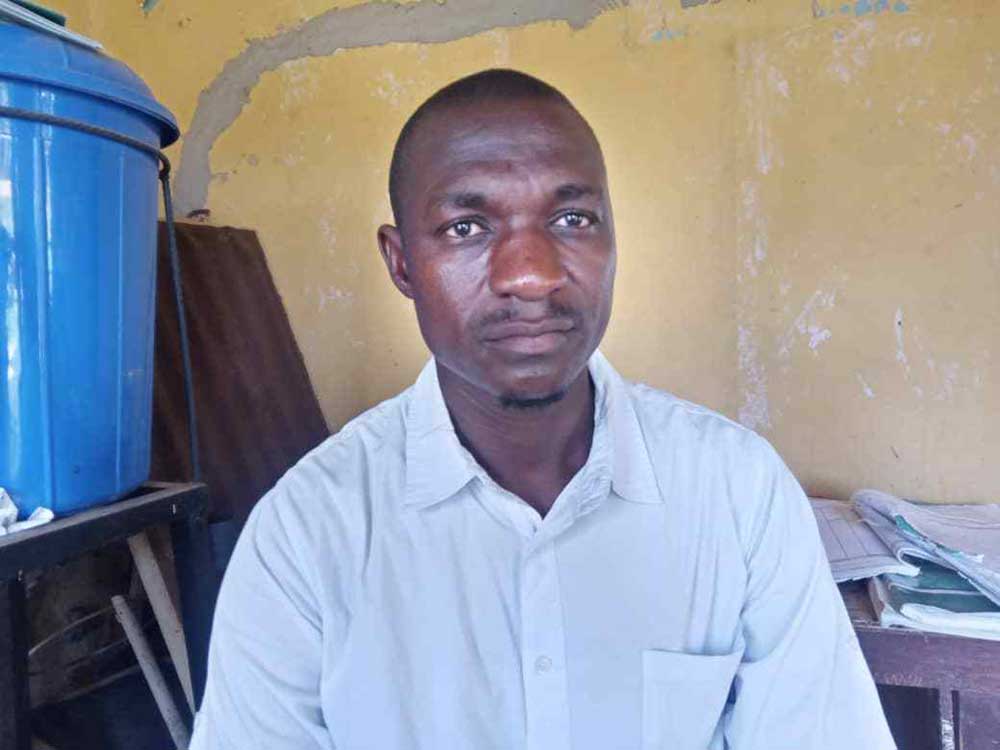
Credit: Afeez Bolaji
"Today alone, we have administered penta [pentavalent vaccine] to more than 50 children," he tells VaccinesWork on that Wednesday in mid-July on which Abdullahi receives his vitamin A drop. "We do immunisation two days in a week: an outreach on Monday and fixed-post on Wednesday. The outreach is to serve those who cannot afford transport fares to the health centre from their villages," he says.
Maryam Balarabe, a matron at Sabo Garba PHC in Fagge LGA, Kano, discloses that weekly immunisation uptake has shot up by about 200%, a positive trend she attributes to lessons learned from diphtheria outbreak.
"Honestly speaking, the rate of vaccine administration is growing rapidly by the day. From 50 persons we used to vaccinate weekly, we now do about 150 people. We work from Monday to Friday," she explains.
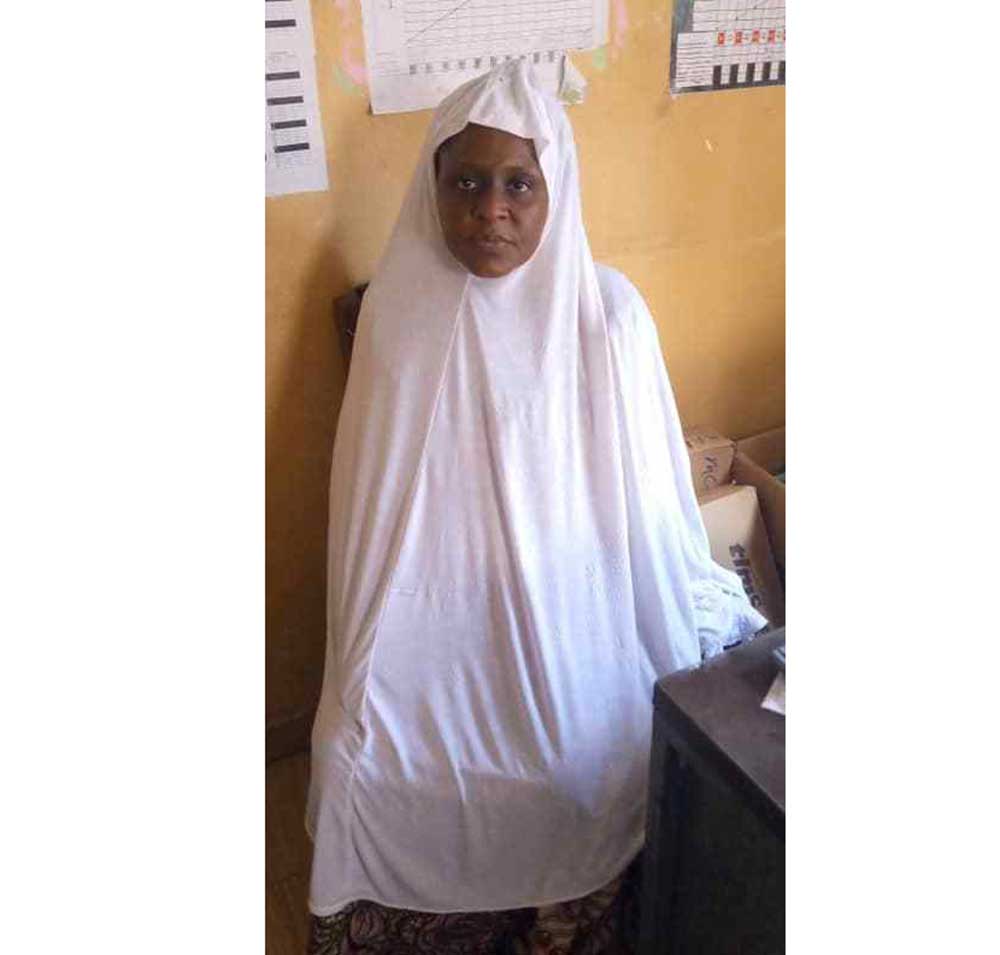
Credit: Afeez bolaji
Catch-up efforts extend beyond Kano – and beyond regular routine immunisation sessions. In Osun State, in Nigeria's south west, for instance, health officials partnered with the World Health Organization (WHO) to carry out an immunisation exercise in fixed and hard-to-reach areas across the 30 LGAs of the state. Taking place between April 24 and April 30, the immunisation push marked the Africa Vaccine Week tagged 'The Big Catch-up'.
“Honestly speaking, the rate of vaccine administration is growing rapidly by the day. From 50 persons we used to vaccinate weekly, we now do about 150 people. We work from Monday to Friday.”
– Maryam Balarabe, matron at Sabo Garba PHC, Fagge LGA, Kano
During the exercise, children received RI antigens such as BCG, OPV, pentavalent and measles vaccines. Tetanus vaccine and folic acid were also given to pregnant and reproductive women. About 3,200 persons – children and pregnant women – were vaccinated during the week-long programme.
Programme manager, Katsina SERICC, Dr Shema'u Abba, is excited by the over-90% coverage with 'Penta 3' – the third dose of the pentavalent vaccine – recorded in the state this year. She explains her centre has been working with units in LGAs to regularly review the performance on immunisation, identifying strengths, gaps and actions to take.
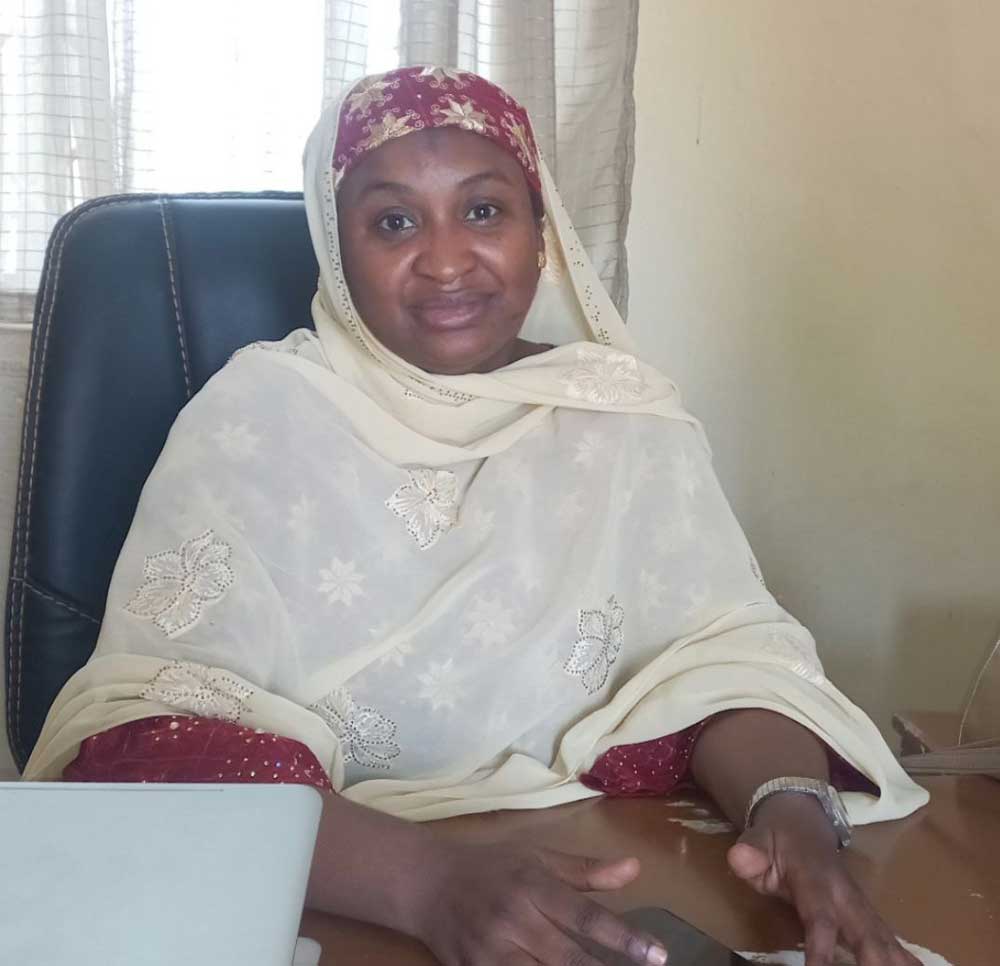
Credit: Afeez Bolaji
"We identify communities and settlements where we have low performance or high number of zero-dose children and conduct special intervention in those areas. We also work with ward development committees and communities to ensure that we plan together, so that during implementation, we have their support.
"We have the fixed post and outreach service where health care workers provide services to settlements that are above two kilometres from the health facility at least once in a week. From last year, when we started having suspected cases of diphtheria, we have strengthened our service delivery.
"For Penta 3 coverage, from January to June this year, we have reached 90% of our target; we were able to reach 170,354 children and we aim to build on this success," she says.
In Lagos, the government leverages awareness creation and a tracking system to increase routine immunisation uptake. Vaccines are administered to children through to age five, an official of the state's primary health care development board, Oluwakemi Adedoyin, explains, with a mechanism put in place to monitor the progress.
Although state-wide data was not provided, Adedoyin says a PHC in Lagos immunises an average of 70 children every day, up from about 45 recorded pre-diphtheria outbreak.
"PHCs in Lagos administer routine immunisation from Monday to Friday. On Mondays, we usually receive newborns and we immunise 70 children or more. Thursday is another busy clinic day when we attend to about 80 children.
"We educate nursing mothers regularly and have devised special means of scaling up immunisation. We have a tickler box for tracking nursing mothers that stop bringing their children to the clinic. We call them on the phone to ask why they stop. Some will tell us they have relocated and we will encourage them to continue the immunisation at health centres in their new locations.
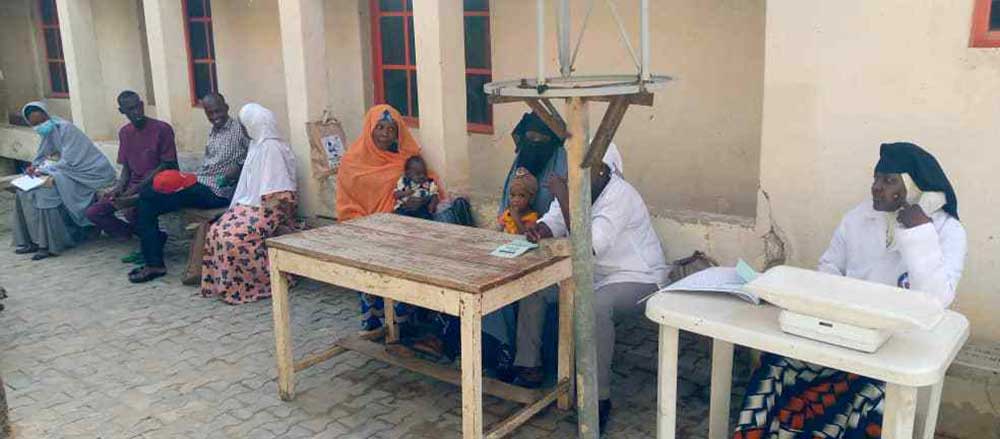
Credit: Afeez Boljai
"For those with transport fare issue, we tell them nearest outreaches where they could get their children vaccinated. We have community health workers who visit markets and settlements every week to immunise children whose mothers could not come to the hospital because of trading or other reasons. We also give tetanus-diphtheria vaccine to reproductive and pregnant women," she says.
Aliyu Sa'i, zonal secretary of Kaduna PHCDA office in Zaria, is confident stakeholders are on course to kick out diphtheria and all kinds of vaccine-preventable diseases soon with the level at which people embrace immunisation in the state.
"Immunisation in Kaduna, especially Zaria, is very encouraging with 70% to 80% acceptance. During outreaches in villages, parents bring out their children for vaccination. Even before the outbreak of diphtheria, most people are receptive to immunisation in Zaria and it is as a result of massive sensitisation the government regularly carries out. The very few rejections we record are in the rural areas and with extensive awareness, they eventually accept it," he says.
